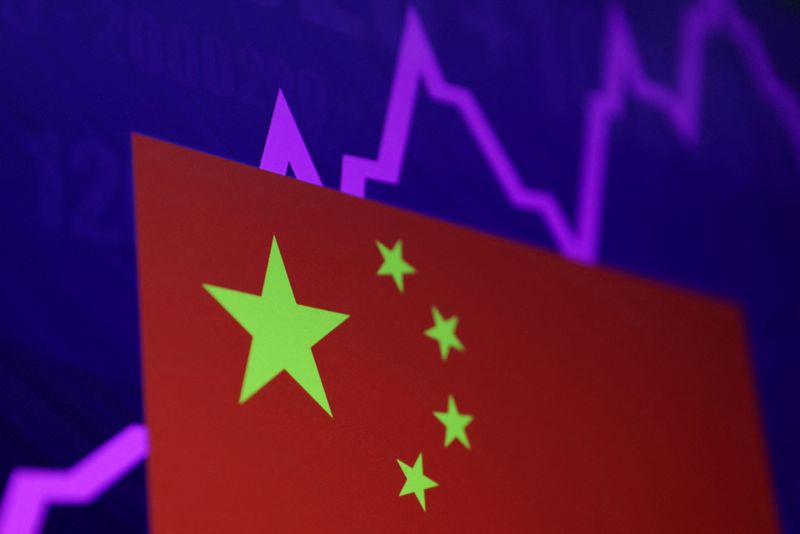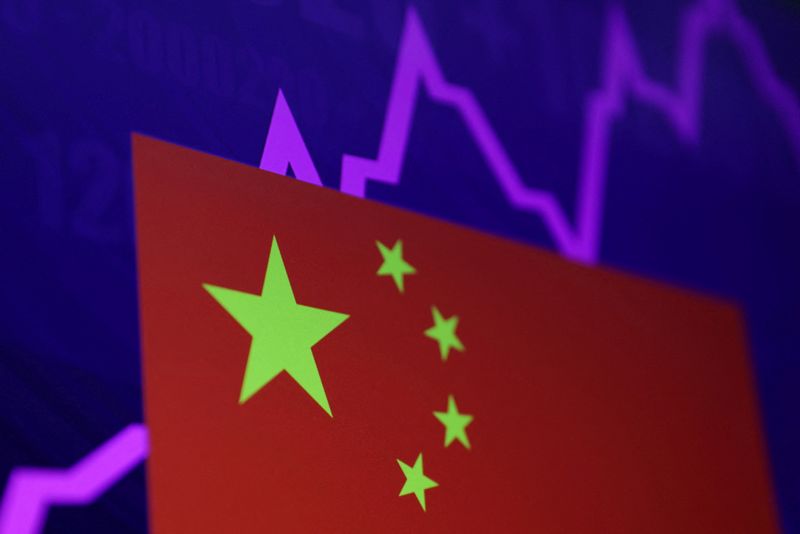SHANGHAI/HONG KONG (Reuters) - Chinese regulators are scrutinising old business deals and even the personal bank accounts of senior executives as they ramp up inspections of IPO hopefuls to slow the pace of fresh capital raisings and boost secondary markets, according to 10 sources.
The onsite inspections of companies often involve the seizure and examination of mobile phones and laptops belonging to top executives, said two of the sources, methods traditionally used by authorities to probe insider trading cases.
The moves have resulted in a growing list of local companies withdrawing initial public offering (IPO) applications. China's securities regulator has said it aims to ensure only high-quality firms or those operating in industrial sectors favoured by Beijing are able to tap the market.
The China Securities Regulatory Commission (CSRC) said last month on its website it would conduct onsite inspections on 20% of listing applicants this year, four times last year's goal, after in March tightening rules on such inspections.
The sources, who have knowledge of the matter, declined to be named due to the sensitivity of the matter. The CSRC did not respond to requests from Reuters for comment.
The heightened scrutiny of IPO candidates has spread disquiet in what was until last year a booming business, forcing many companies to drop their listing plans and investment banks to cut jobs and pay.
More than 130 Chinese IPO candidates have terminated their listing plans so far this year, according to stock exchange data, led by Swiss agricultural and seeds group Syngenta's withdrawal of a planned $9 billion IPO in Shanghai.
The Shanghai and Shenzhen stock exchanges, the country's largest, have accepted zero applications since the start of the year, according to their websites. The stock exchanges did not respond to requests for comment.
While China's domestic benchmark market index has risen 7% this year after bottoming in February, total funds raised via IPOs in mainland China plunged nearly 90% to $2.6 billion for the first four months of the year, the lowest since 2013, according to LSEG data. Excluding mainland China, global IPO volumes jumped 84% to $32.4 billion over the same period.
Analysts believe the sharp slowdown in IPOs sucking out liquidity is aiding a rebound in Chinese stocks, but the draconian vetting process has fanned concerns about challenges for corporate fundraising in a slowing economy and the country back-pedalling on market-oriented reforms.
Others, however, say the regulatory crackdown will help weed out problematic companies looking to tap markets and protect smaller investors who are often keen participants in IPOs.
Retail investors get burnt in China's stock market where "many business people - not aspiring entrepreneurs - seek IPOs as a way to cash out," said Yang Tingwu, vice general manager of asset manager Tongheng Investment.
HEALTH CHECKS
The near freeze in IPOs comes as new CSRC chief Wu Qing launched a campaign to boost listed company quality as part of his efforts to revive a struggling stock market, a task that he was entrusted with as part of his surprise appointment in February.
Wu, who was nicknamed the "broker butcher" for a crackdown on securities firms in a previous regulatory stint, said in March "every step of the IPO vetting and registration process should be put under the microscope", and vowed to "keep fraudsters away from capital markets."
As part of the heightened scrutiny, officials from the securities regulator or the stock exchanges show up at an IPO applicant's office demanding a thorough health check, said four of the sources.
During these inspections, authorities comb through original records of business transactions and for the company's chairman and senior managers scan personal bank data and probe every transaction considered dubious, said three of the sources.
The underwriters for the potential IPOs have to be present and in some cases are also questioned by the authorities, said the sources, raising the risk of the banks getting stuck in regulatory crosshairs.
When inspectors arrive, bankers sometimes need to hand over their mobile phones and laptops because if they refuse, they could be kicked out of the IPO project or even fired, said a banker who works at a major Chinese brokerage.
And if the inspectors find out a founder's wife bought a Louis Vuitton handbag for 100,000 yuan ($13,861.36), they could ask him to justify the purchase, the banker said, to rule out any fake transaction involving company finances.
"In the real world, hardly any company can survive such intense scrutiny," the banker said, referring to the stringent nature of the inspections.
China fully adopted a U.S.-style, registration-based IPO system last year, but "we are going back to the old regime, when IPOs must go through strict regulatory vetting," a second investment banker said.
In February, the CSRC fined Shanghai-based semiconductor company S2C Ltd for fraud in its listing application, even though the firm's IPO plan was cancelled in July 2022.
The regulatory measures to rein in IPOs have darkened the prospects for investment banks and dealmakers, who raked in millions of yuan in salaries and bonuses in previous years from underwriting equity offerings.
China's equity-related underwriting fees slumped to just $301 million during the first three months of this year, down 77% from the year-ago period, and the lowest quarterly income since 2009.

"Many of my colleagues have been idled at home for several weeks," said the first banker, who works at a major Chinese brokerage and now plans to leave the business. "There's a lot of anguish."
($1 = 7.2143 Chinese yuan renminbi)
